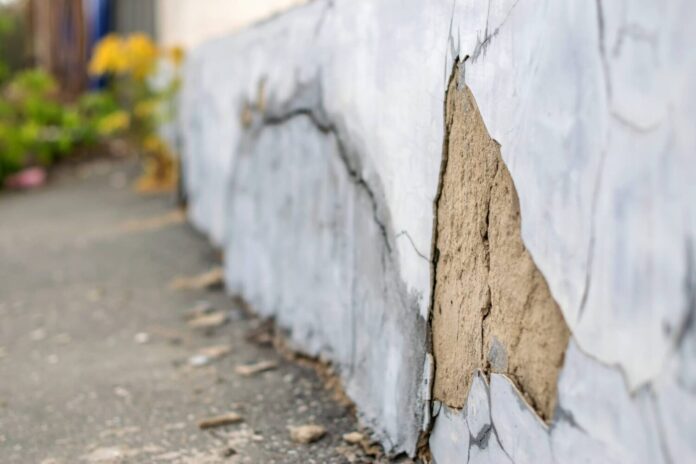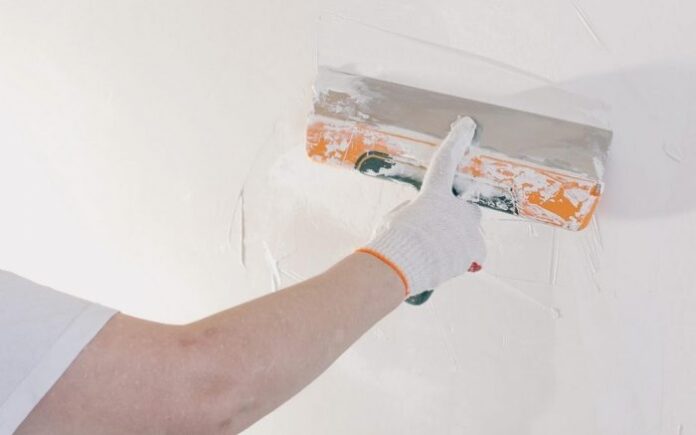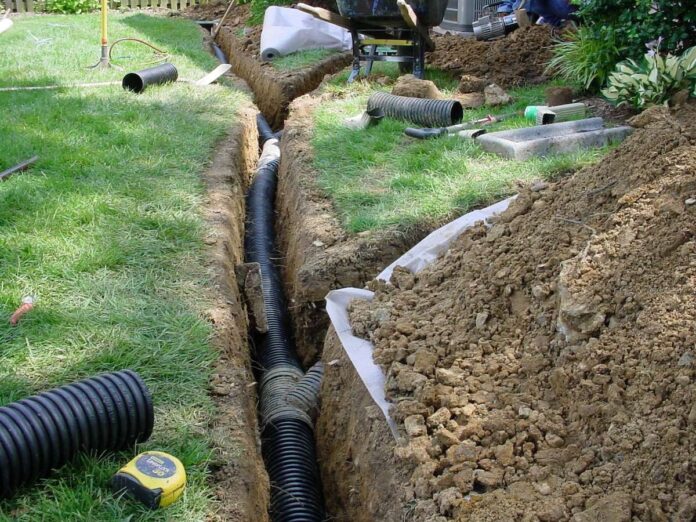When hunting for a house, you will run into many types of properties. This part can be tricky because it’s hard to find a house that has everything you want in a home. Unfortunately, most people get exhausted and settle for a house with issues. Others get carried away by certain features that they overlook other big problems. In this article, learn some big issues to watch out for when house hunting.
Finding the right house requires patience, diligence, and an understanding of the underlying costs involved. It’s advisable to have a professional inspection before making a decision. This can uncover hidden issues that may be costly in the future. Always keep your long-term goals in mind and prioritize features that align with your lifestyle and budget.
Cracks in the Foundation

One of the key things to look out for is cracks in the foundation. While a couple of hairline cracks are nothing to be alarmed about, large cracks and bulges are a cause for concern. They indicate that the house has structural issues that need to be fixed. If you buy such a home, you’ll have to foot the repair cost, which isn’t exactly cheap. According to HomeAdvisor, it will cost most homeowners around $4,640 to repair the foundation. If this isn’t a cost you want to bear, avoid such homes.
Getting a structural engineer to evaluate the foundation can also be an intelligent move. This specialist will help you understand the extent of the damage and whether it is repairable. If the cracks are extensive and the repair cost is high, it might be wise to walk away. Remember, foundation issues can lead to more severe problems down the road.
Water Stains on the Walls and Ceiling
If you notice water stains trickling down the wall or on the ceiling, be careful. This indicates a plumbing issue that can put the house’s structure at risk. Before making an offer, know where the leak is coming from and how much it will cost to fix it. Water stains can signify a persistent leakage problem, which might have caused unseen damage within the walls or ceiling.
It could lead to rotting wood, mold growth, or damage to electrical systems. Always consult with a plumber or other professionals to understand the full scope of the problem before proceeding.
Aging HVAC System

With today’s climate conditions, you can’t survive without a functional HVAC system. According to CNN, an average HVAC unit lasts 15 to 20 years. When a unit is approaching its last days, it will be less efficient. This translates to higher energy bills and a house that isn’t warmed or cooled effectively. At this point, the only solution is replacing the unit, which can be costly. If this isn’t a burden you want to shoulder, it’s best to avoid such a house.
Inquire about the service history of the HVAC system and ask for a professional assessment if needed. A properly maintained system can last longer and be more efficient. However, if neglected, an older HVAC system can become a significant financial burden. Consider this as a part of your overall budgeting when evaluating potential homes.
Pest Damage or Insect Infestation
As you tour the house, look for signs of pest infestation, such as pest droppings, dead bugs, and termite mud tunnels. Pests and insects put your health and the structure of your home at risk. If necessary, request a pest inspection to be safe instead of having to bear the cost of eliminating the problem.
A thorough inspection by a pest control expert can reveal the extent of an infestation and the methods needed to eradicate it. Remember, some infestations may require ongoing treatment and maintenance, adding to the cost of homeownership. It’s crucial to weigh these factors in your decision-making process.
DIY Additions

With the high costs of contractors, most homeowners choose to handle some repairs or additions by themselves. However, only a few have adequate knowledge to handle these additions and do a job that meets the outlined building codes. Be careful about such conditions, as they could contain wiring, structural, or plumbing defects.
If you encounter DIY additions, make sure to have them thoroughly inspected by licensed professionals. Shoddy workmanship can lead to safety hazards and expensive repairs down the line. If the homeowner cannot provide permits or documentation for the work, consider this a red flag.
Wet Basement
While basements are often dark and damp, this could indicate a bigger problem with the house. One of the reasons for a wet basement is a foundation with cracks, allowing water to sip through the foundation. This puts the structure of the house at risk. Aside from that, a wet basement is also a health hazard. According to Sanited.com, more than 38% of basements with moisture issues are likely to develop fungal and mold growth.
Mold can lead to respiratory issues and is not an easy problem to fix. A wet basement requires immediate attention and possibly extensive repair work. Consult with a waterproofing expert to understand the root cause and the remediation required. Be aware of the potential costs and long-term maintenance that might be needed to keep the basement dry. It’s a critical decision point, especially if you plan to use the basement as living or storage space.
Fresh Paint on One Wall

When selling a home, it’s normal for buyers to repaint the whole house to make it more appealing. However, if only one wall is painted, the seller could be trying to hide an issue like water damage or mold and mildew. If you notice a strange odor coming from the room, have the house inspected to be safe. A partial paint job may signal a cover-up of underlying problems.
Engage a home inspector to examine the area thoroughly and determine if there are hidden issues that could affect the home’s value or safety. Transparency and open communication with the seller about these concerns is crucial during the buying process.
The Selling Price Is Too low
While house hunting involves finding an affordable house, if the price is too low, be cautious. This is especially true if the houses in the same neighborhood are priced too high. There could be issues with the house which are costly to repair. A below-market price can indeed be a red flag, indicating hidden problems or legal troubles related to the property.
Always conduct thorough due diligence, including a detailed inspection and review of the property’s history and documents. Consult with a real estate professional who knows the area well, as they can guide you in understanding why the house is priced so low, and help you make an informed decision.
Faulty Electrical Wiring

When house hunting, faulty electrical wiring can be a hidden but serious problem. This issue is not only a potential fire hazard but can also lead to constant electrical failures throughout the house. If the wiring is old or improperly installed, it may not meet current safety standards, leading to a constant need for repairs. Proper inspection of the electrical system can reveal signs of wear and tear, improper connections, or substandard materials.
It’s crucial to hire a professional electrician to thoroughly inspect the system and provide an estimate for any necessary repairs or upgrades. Failure to identify and address faulty wiring can lead to costly problems down the line and may even put your family’s safety at risk.
Inadequate Insulation
Inadequate insulation can be a hidden and expensive issue when buying a house. Proper insulation is essential for maintaining comfortable temperatures within a home, as it helps to retain heat during the winter and keep the home cool during the summer. If insulation is insufficient or improperly installed, energy bills can skyrocket due to the heating and cooling system working overtime.
Inspecting the attic, walls, and basement for proper insulation material and thickness is key. Inadequate insulation can also lead to moisture problems, causing mold and mildew. Investing in a thorough inspection by a professional can save a lot of money and stress in the long run.
Roof Damage

Roof damage is a critical concern when house hunting, as it can lead to water leaks, structural issues, and costly repairs. Look for signs of missing or damaged shingles, leaks, and water damage in the attic. A professional home inspector can assess the overall condition of the roof, including the underlying structure and ventilation.
If the roof is nearing the end of its lifespan or shows signs of neglect, it may need substantial repairs or complete replacement. Being aware of roof issues and factoring in potential repair costs is essential in making a wise purchasing decision.
Lead Paint and Asbestos
For homes built before 1978, there may be a risk of lead paint or asbestos, both of which can pose serious health risks. Lead paint can be harmful, especially to children, if ingested or inhaled. Asbestos, often found in older insulation, roofing, or flooring materials, can cause respiratory issues if disturbed. If you’re considering an older home, it’s crucial to have it inspected by professionals who specialize in identifying these materials.
If found, remediation can be costly and time-consuming but is necessary to ensure the safety and health of the home’s occupants.
Landscaping and Drainage Issues

Landscaping and drainage problems might seem minor but can lead to significant issues down the line. Poor drainage can cause water to pool around the foundation, leading to cracks and other structural damage. Overgrown trees and plants may interfere with power lines or the home’s structure.
Improper grading can also lead to water seeping into the basement. It’s important to inspect the yard, gutters, downspouts, and the slope of the property for potential drainage issues. Hiring a professional landscaper to evaluate and correct any problems is a wise investment to prevent future headaches and costly repairs.
Final Thoughts
These are red flags to be aware of when searching for a new home. Knowing what to look for will save you a big headache down the road. While they don’t necessarily mean you shouldn’t buy that house, they let you make an informed choice on whether to purchase or not. Taking the time to investigate these potential issues can lead to a more satisfying homebuying experience, free of unexpected surprises.
Engaging professionals like home inspectors or real estate agents to guide you through the process can also be invaluable. Remember, the ultimate goal is to find a home that suits your needs and budget, and being aware of these red flags can be crucial in achieving that goal.









